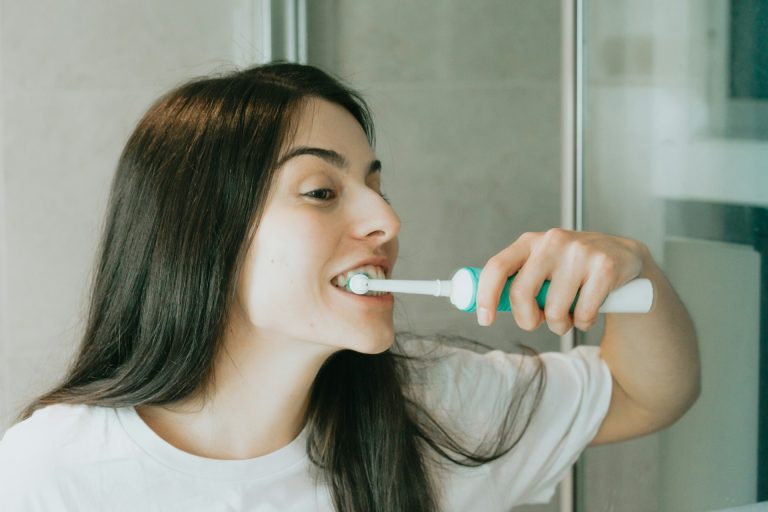Gum health is a critical aspect of maintaining a strong, healthy smile and overall oral hygiene. Neglecting proper gum care can lead to the development of periodontal (gum) disease, which affects not only your oral health but also your overall well-being. Periodontal disease has been linked to various health problems, including heart disease, diabetes, and respiratory infections. To prevent these complications and protect your gums, it is essential to engage in regular periodontal maintenance and care.
This informative guide will detail how periodontal maintenance can help prevent gum disease, the benefits of these specialized treatments, and the steps you can take to maintain your gum health between visits to our dental office. With the support and guidance of our skilled dental professionals, you can protect your gums and ensure long-term periodontal health.
1. Understanding Periodontal Disease and Its Causes
Periodontal disease, commonly known as gum disease, is an inflammatory condition affecting the gum tissue and supporting structures of the teeth. The disease occurs in two stages: gingivitis and periodontitis.
- Gingivitis: This initial stage of gum disease is characterized by inflammation of the gums, redness, swelling, and bleeding during brushing or flossing. Gingivitis is typically reversible with proper oral hygiene and professional dental care.
- Periodontitis: If gingivitis is left untreated, it can progress to periodontitis, a more severe form of gum disease. This stage is characterized by the destruction of gum tissue, bone loss, and potential tooth loss. Periodontitis requires specialized treatment and ongoing maintenance to manage and prevent further damage.
The primary cause of periodontal disease is plaque, a sticky film of bacteria that forms on teeth and gums. If not removed through regular brushing and flossing, plaque can harden into tartar, which exacerbates gum inflammation and can only be removed by professional dental cleaning.
2. What is Periodontal Maintenance?
Periodontal maintenance is a specialized dental treatment designed to prevent the progression of periodontal disease by removing plaque and tartar buildup, monitoring gum health, and providing personalized oral care advice. Typically performed every three to four months, these appointments are crucial in maintaining gum health for individuals who have undergone treatment for periodontal disease.
The steps involved in periodontal maintenance may include:
- Scaling and Root Planing: A deep-cleaning procedure that involves the removal of plaque and tartar from above and below the gum line, as well as the smoothing of tooth root surfaces to help prevent plaque buildup.
- Pocket Depth Assessment: Measuring the depth of the spaces between the teeth and gums, known as periodontal pockets, to monitor the progression of gum disease and determine the effectiveness of the treatment.
- Dental X-Rays: Taking radiographic images to assess the bone structure supporting the teeth and detect potential issues below the gum line.
- Home Care and Oral Hygiene Recommendations: Providing personalized guidance on maintaining optimal oral health through daily habits, such as proper brushing and flossing techniques, mouth rinses, and other preventive measures.
3. Benefits of Periodontal Maintenance
Incorporating periodontal maintenance into your dental care routine can provide significant advantages for your gum health and overall oral well-being:
- Prevents the Progression of Gum Disease: Regular periodontal maintenance aids in the early detection and management of gum disease, preventing the condition from advancing to more severe stages.
- Protects Teeth and Bone Structure: Periodontal maintenance helps prevent damage to the gum tissue, teeth, and supporting bone structure caused by untreated periodontal disease.
- Reduces the Risk of Tooth Loss: By effectively managing periodontal disease, periodontal maintenance can minimize the likelihood of tooth loss due to weakened gums and bone loss.
- Supports Overall Health: A healthy gum line contributes to better overall oral health and reduces the risk of developing conditions associated with periodontal disease, such as heart disease, diabetes, and other systemic health issues.
4. Maintaining Gum Health Between Visits
In addition to attending your scheduled periodontal maintenance appointments, taking these precautions will help ensure optimal gum health between visits:
- Brush at Least Twice a Day: Using a soft-bristled toothbrush and fluoride toothpaste, brush your teeth for two minutes at least twice a day to remove plaque and bacteria.
- Floss Daily: Floss at least once a day, gently maneuvering the floss between your teeth and below the gum line to remove trapped bacteria and food debris.
- Rinse with a Therapeutic Mouthwash: Use an antimicrobial or therapeutic mouthwash to help inhibit plaque buildup and alleviate gum inflammation.
- Maintain a Healthy Diet: Consume a balanced diet rich in vitamins and minerals, and limit your intake of sugary and acidic foods, which can contribute to plaque formation and gum irritation.
Conclusion: Secure Your Gum Health with Periodontal Maintenance
Periodontal maintenance is a critical component of maintaining long-term gum health and preventing the progression of periodontal disease. By understanding the importance of these dedicated treatments, scheduling regular appointments, and practicing diligent oral hygiene between visits, you can effectively protect your gums and maintain a healthy, radiant smile for years to come.
At Colorado Gum Care Northglenn, CO, we are dedicated to providing exceptional gum care services to the Northglenn community. Our team of experts is committed to helping you understand periodontal disease and appreciate the importance of periodontal maintenance as an integral component of your dental care regimen. Through diligent maintenance and personalized care, we will help you achieve a radiant, healthy smile and improve your overall oral health. Schedule a consultation to learn more about the benefits of periodontal maintenance and how our specialized treatments can help secure your gum health for years to come!







